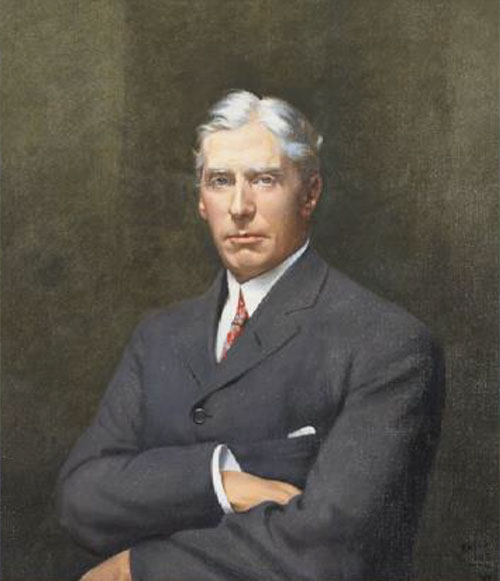The establishment of the Foundation was the culmination of the life of Cleveland H. Dodge. It continues his deep belief in philanthropy through his descendants. His intention was to create an outlet for his children, grandchildren, and generations beyond to carry on his financial support for and encourage their service to, worthy organizations. His was a life immersed in the ideals of philanthropy, service, and family.
As the center of his many business activities, Phelps, Dodge & Company, Inc., a major copper mining and manufacturing company flourished under his leadership. Cleveland’s successful professional career was only a small part of his life. Understanding his multifaceted philosophy of service to society during the late 19th and early 20th century is important to gain an understanding of how the Foundation was the natural outgrowth of his priorities.
First and above all, he was a family man, and nothing was more important than spending time with his children, wife, and extended family. His regard for his family naturally extended to the Foundation, as he continued to carry on the life causes of his parents, grandparents and his late sister, Grace Dodge.
Cleveland is well-known for his life-long friendship with President Woodrow Wilson, whom he met at Princeton in the late 1870s. This relationship manifested itself with a strong interest in foreign affairs, particularly during the First World War. Like his father and grandfather, Cleveland had a deep interest in the Near East. He became a leading advocate for aid to victims of World War I, particularly the victims of the Armenian Genocide. He led the relief efforts and founded the Near East Foundation, that has evolved today as an organization that works to eliminate poverty in the region and to ease other problems arising from regional conflicts. The Foundation and its Board members have continued this long-term commitment to the Near East region.
In the local New York region, Cleveland was a respected philanthropic leader, serving on many boards and committees in support of public institutions and higher education. Cleveland helped to build and finance the New York YMCA, becoming its president in 1890. He served as president until 1903, and made great strides in growing its educational and health and fitness programs. Cleveland believed in the power of the cultural institutions to positively influence community. His contribution of ideas, time and effort on boards and committees was legendary, and included the New York Public Library, American Museum of Natural History, New York Botanical Garden, Metropolitan Museum of Art, and the New York Zoological Society, among others.
Cleveland’s priorities also lay in the realm of his personal, life-long interest in higher education. The Foundation’s initial support for Teacher’s College embodied the value placed by the Foundation on education as a necessity in a child’s life. Grace Dodge, Cleveland’s sister, was the founder of Teacher’s College. She believed in the “efficacy of education and…training as a means of combatting poverty”. His deep respect and admiration for all Grace had accomplished at Teacher’s College, together with his own regard for the value of education forged a long and supportive legacy relationship between Teachers College and the Foundation. This relationship continues with William D. Rueckert, the Foundation’s President who currently serves as Chairman of the Teachers College Board of Trustees.
Ultimately, the Foundation served as a capstone to the philanthropy of Cleveland H. Dodge. It became the extension of his life-long efforts to be a positive force for good. His influence remains the inspiration for the Foundation today.

